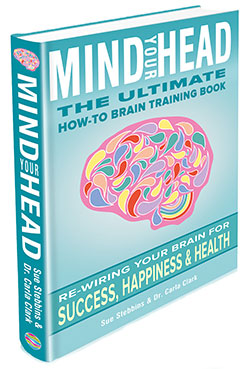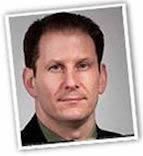Wittgenstein's Private Language: Grammar, Nonsense, and Imagination in Philosophical Investigations
(STEPHEN MULHALL)
Reviewed by Charles Crittenden
Page 1
Source: http://ndpr.nd.edu/review.cfm?id=9603
Mulhall's primary concern is to examine ##243-315 of Philosophical Investigations, which center around the possibility of a private language, in the light of a distinction between the substantial and the resolute readings of the Tractatus. The former of these readings takes the remarks at the end, though describing the propositions constituting the Tractatus as nonsensical, as suggesting that there are ineffable truths to which these propositions point -- truths that can never be stated as they lie beyond the limitations of language. The resolute interpretation, on the other hand, understands these passages as saying that the limits of language really are the limits of sense and nothing ineffable or mystical lies beyond them. Mulhall's aim is to show that the Investigations should be read in this latter, resolute, way -- as bringing out the limits of language so as to indicate that these are not just limitations on our abilities to understand but limits to the understanding itself.
A substantial reading is always tempting, says Mulhall, but would reflect a misunderstanding of Wittgenstein's intentions; accordingly, examining these crucial sections in the light of this distinction can elucidate the kinds of mistake that can generate this wrong interpretation. Thus Mulhall's primary preoccupation is "that of critically evaluating the philosophical illumination that might be gained by attempting to transfer this originally Tractarian distinction between resolute and substantial readings to the context of Wittgenstein's later philosophy"(12). Since Stanley Cavell's work on these sections has been sensitive to substantial/resolute issues, a second of Mulhall's goals is a critical evaluation of his discussions. Third is to show that these sections are continuous with the earlier parts of the Investigations in their employment of figuration, imagery, and metaphor, a focus of Mulhall's previous work. While his procedure is to examine consecutively what he considers to be the most important of these sections, his analysis is made more complex with these changing emphases -- now on understanding Wittgenstein's meaning, now on Cavell's commentary, and less frequently excursions into the work of figures such as Heidegger, Nietzsche, Emerson, Kafka, and Iris Murdoch. I cannot address everything that Mulhall's rich and sometimes idiosyncratic commentary includes but will confine myself primarily to the first of his goals.
In #243 Wittgenstein ostensibly describes a language where the words refer to someone's inner, private experiences, which therefore can be understood only by the person himself and not by anyone else. The substantial interpretation takes it that such words are supposed to have a definite application; yet, as the sections following #243 show, the description of the situation in which they are to apply rules out their having any application at all. The resolute approach finds this too quick: language is flexible and offers many uses. Instead of indicating the meaning of the words used in presenting the private linguist's conception, the philosophical therapist must follow out the many senses for the crucial terms here that language may provide. When this process is exhausted and no meaning is found to satisfy this linguist, then she will find this procedure convincing and realize that there is no sense at all to the private language idea. She will not suppose that it still suggests some possibility that we could think if only the rules of language would allow it.
Both these interpretations lead to the same result -- the deconstruction of a philosophical proposal. What then is the difference? If the proponent of a philosophical idea really believes that the words setting out the proposal "articulate an insight, then simply to oppose them or dismiss them (by directly invoking a grammatical articulation that they appear to violate)" would fail to acknowledge that the proposer will "necessarily respond from within her conviction". She will feel "that her point must have been misunderstood, or that she has discovered something that undermines her, and our, prior investment in that article of grammar". So treatment of the suggestion must "articulate the [proponent's] fantasy from the inside, and thus to participate in what is latently nonsensical with a view to allowing its nonsensicality to become patent"(82-83).
Mulhall gives here a striking and effective expression of Wittgenstein's intentions. But this makes it clear that the philosophical theorist (skeptic, solipsist, private language advocate, et al) is employing a philosophicalconception -- an intellectual construction having implications for understanding a certain range of phenomena and consistent or conflicting with other such constructions, etc. Classically such conceptions have been accepted or rejected on the strength of supporting or opposing arguments. Wittgenstein's approach is to deal with the meaning of the terms in which they are phrased. But unlike logical positivism, which imposes the external meaning-standards of empirical science, his procedure is to show that such conceptions violate the very rules of the language in which they are expressed.
At this point, what one misses in Mulhall's discussion is a concentrated examination of Wittgenstein's account of the kinds of philosophical thinking he opposes and his treatment of it. Sections #89 to roughly #115 are important in this regard; here Wittgenstein introduces the notion of a picture and speaks of its role in traditional philosophical thought. #89 speaks of our desire "to explore the nature of all things" -- not from an interest in empirical facts or causal connections "but from an urge to understand the basis, or essence, of everything empirical". Yet "'The essence is hidden from us': this is the form our problem now assumes"(#92). We come to think of something as the underlying essence in a particular case because of the words used to describe phenomena: "a simile that has been absorbed into the forms of our language produces a false appearance, and this disquiets us. 'But this isn't how it is!' -- we say. 'Yet this is how it has to be'"(#112). "A picture held us captive. It lay in our language and language seemed to repeat to us inexorably."(#115) The origins of essentialistic thinking lie in pictures embedded in forms of speech. A picture functions as a conception of an underlying state of affairs; it can therefore never come into conflict with observable facts and so cannot be falsified or modified by appeal to them. Undermining its hold requires working through the expressions seeming to suggest it and coming to realize that they do not support it, as Mulhall has pointed out. This is a conceptual process, one of noticing meaning and logical consequences.
We Make it Easy to Succeed
Successwaves, Intl.
Brain Based Accelerated Success Audios
 |






